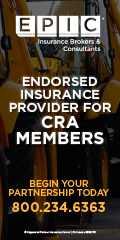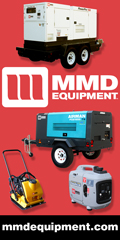
| Past Issues/Subscribe | Advertise |
California Personal Property Tax-- Inventory Is Not Taxable, However Equipment "Out for Rent" on the Lien Date Is
What is the property tax? California Revenue Laws provide for a yearly ad valorem tax based on property as it exists at 12:01 a.m. on January 1 (the so called "Lien Date"; note the former "lien date" was March 1). The tax applies to all assessable business property owned, claimed, possessed, controlled or managed on the tax lien date. The tax is self-assessed as by a taxpayer’s filing of an "assessment statement" with the county assessor’s office where the property is located! The rate of tax varies from county to county and of course it tends to go "up" each year. It is therefore prudent to carefully prepare the self-assessment form, both to avoid undervaluing your taxable assets, as well as, to avoid overvaluing them for tax purposes!
What should be declared? Declare only equipment that is "out for rent" on the lien date (i.e.: 12:01 a.m., January 1). Equipment that is held as inventory (i.e.: equipment not out for rent on the lien date) is not taxable! Rule 133 of the State Board of Equalization Property Tax Law Guide, provides that business inventory includes property held for sale or lease on the lien date. Accordingly, Rental Centers should not assess themselves for equipment that is in their possession (i.e.: in their rental yard). Of course, office equipment used by a rental center, as well as, supplies, etc., are not considered inventory and must be declared as taxable.
How do I reduce my tax burden? One way to reduce your tax burden is to "lock-up" your business on the lien date (January 1) so that you will have no equipment out on rent (i.e.: all of your equipment is therefore inventory)! Another method would be to have all equipment returned to your possession before the lien date and then held by you as inventory on the lien date. Another alternative would be to have your equipment located outside of the State of California on the lien date!
The above examples, however, make little business sense! Although tax may be saved, the business will be penalized because revenue is not generated. It makes better business sense to generate income and then pay the tax, rather than sacrifice rental income in order to save the tax! The best solution therefore, is to carefully assess your business and not declare more than your "fair share" of property for tax purposes. If your business records indicate that the property was not rented on the lien date, do not declare that equipment as taxable!
The above information is from Les Chayo, CRA General Counsel
|

| calrental.org |



